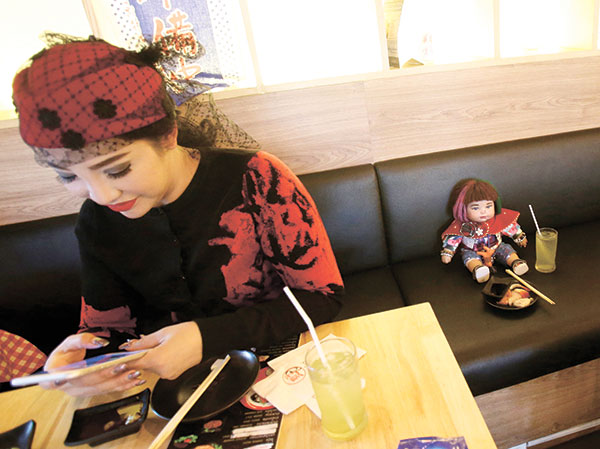In latest fad, Thais treat ‘child angel’ dolls like progeny
BANGKOK — Mix one part superstition, two parts fashion, a dab of celebrity idolatry and a heap of media frenzy, and what do you get? “Child angel” dolls, the latest craze in Thailand.

The dolls occupy a niche somewhere between Buddhist amulets, beloved by gamblers, gangsters and policemen for their reputed magical protective powers, and Furby toys, adored by children for their cuteness.
The adults who own them affirm that “child angel” dolls will bring you good luck, especially if you treat them like your own living progeny, taking them on trips, treating them to meals and praying together at the temple.
While “luk thep” dolls, as they are known in Thai, previously drew only mild notice beyond the circle of their devoted collectors, attention skyrocketed this past week after a leaked memo from budget airline Thai Smile instructed staff to treat the dolls like human passengers” provided, of course, their seats were paid for.
The airline noted the creepiness factor, suggesting the dolls be seated out of sight as much as possible. In short order, several restaurants announced similar doll-friendly policies.
The dolls have been specially blessed by some Buddhist monks, who apply sacral markings to them, as they might with a new car or house. It’s not a strictly Buddhist practice, and at least one temple reportedly banned the doll blessings, but easygoing Thais aren’t fussy about blending Hindu ritual and other elements into their religion.
The dolls, mostly imports, cost anything from a few dozen to a few hundred dollars. Some are customized by sellers, and owners invariably gussy them up, with jewelry and other accessories, in anticipation of, or thanks for, good fortune.
Mental health authorities, while cautioning against superstitious practices, acknowledge their therapeutic utility as stress reducers. (AP)


